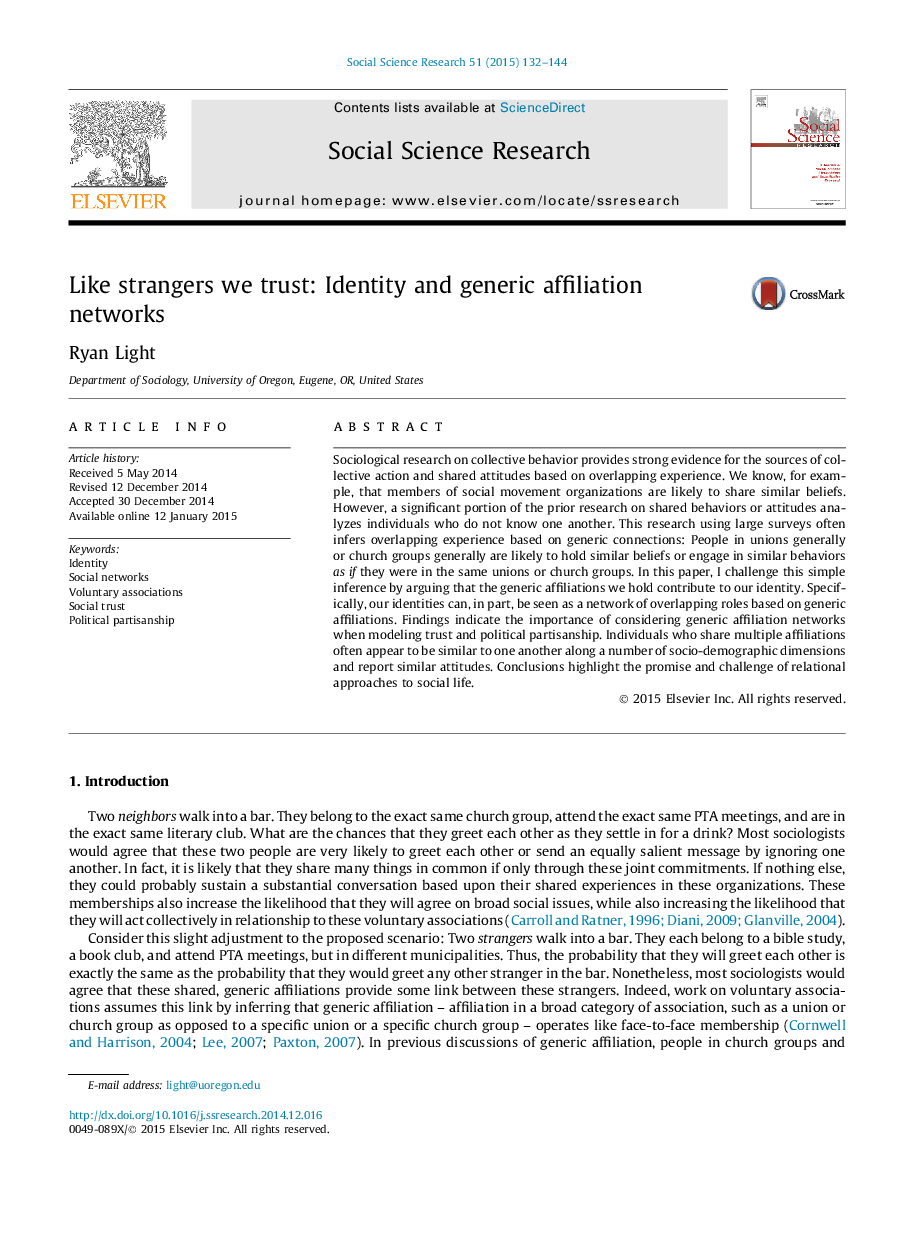| Article ID | Journal | Published Year | Pages | File Type |
|---|---|---|---|---|
| 955740 | Social Science Research | 2015 | 13 Pages |
•I examine voluntary association and identity.•I argue that generic affiliation contributes to structural, role-based identities.•Using social network analysis allows for the modeling of role-based identities.•I provide illustrative analyses of social trust and partisanship.•Results indicate that identity structures affect trust and partisanship.
Sociological research on collective behavior provides strong evidence for the sources of collective action and shared attitudes based on overlapping experience. We know, for example, that members of social movement organizations are likely to share similar beliefs. However, a significant portion of the prior research on shared behaviors or attitudes analyzes individuals who do not know one another. This research using large surveys often infers overlapping experience based on generic connections: People in unions generally or church groups generally are likely to hold similar beliefs or engage in similar behaviors as if they were in the same unions or church groups. In this paper, I challenge this simple inference by arguing that the generic affiliations we hold contribute to our identity. Specifically, our identities can, in part, be seen as a network of overlapping roles based on generic affiliations. Findings indicate the importance of considering generic affiliation networks when modeling trust and political partisanship. Individuals who share multiple affiliations often appear to be similar to one another along a number of socio-demographic dimensions and report similar attitudes. Conclusions highlight the promise and challenge of relational approaches to social life.
